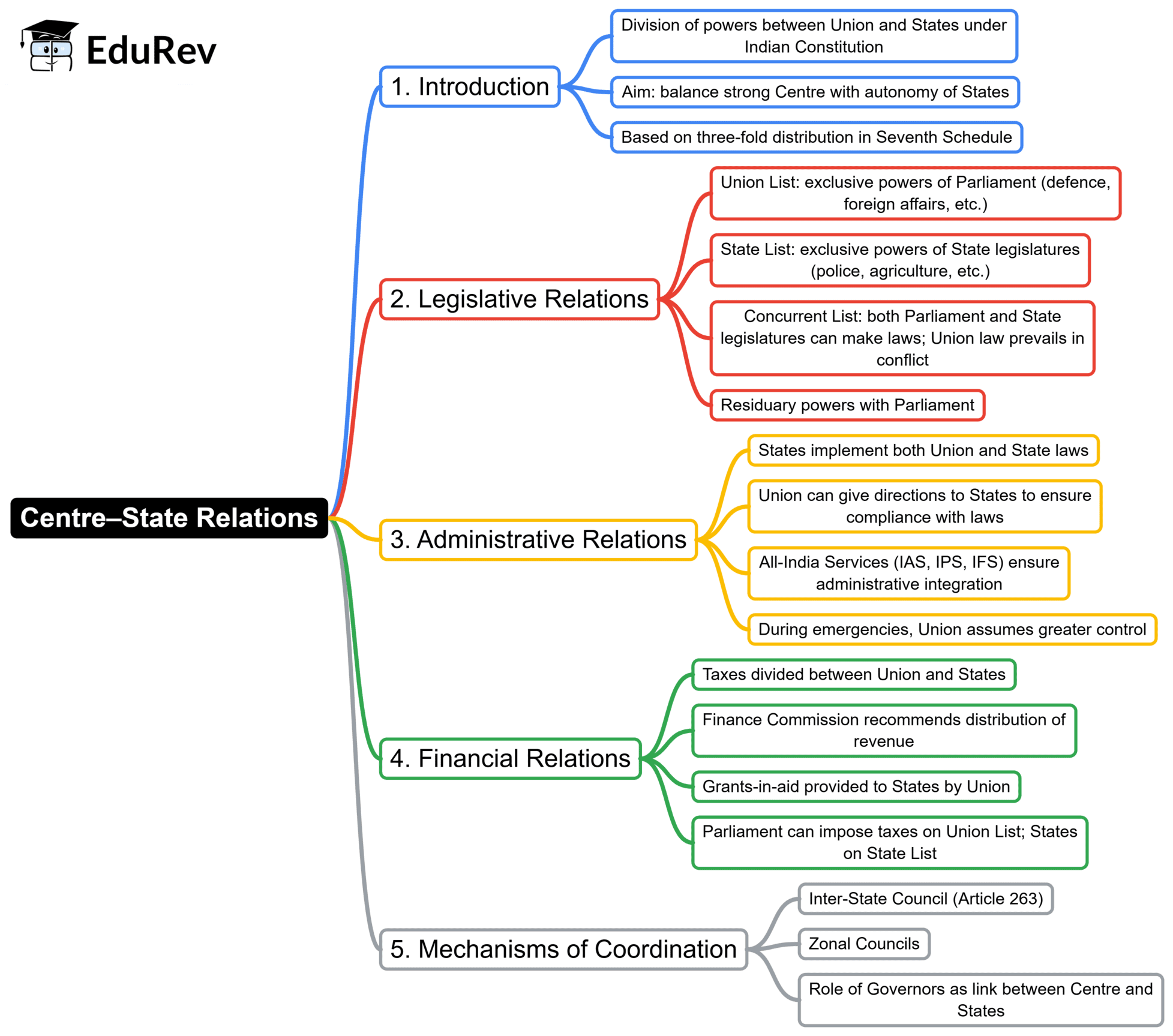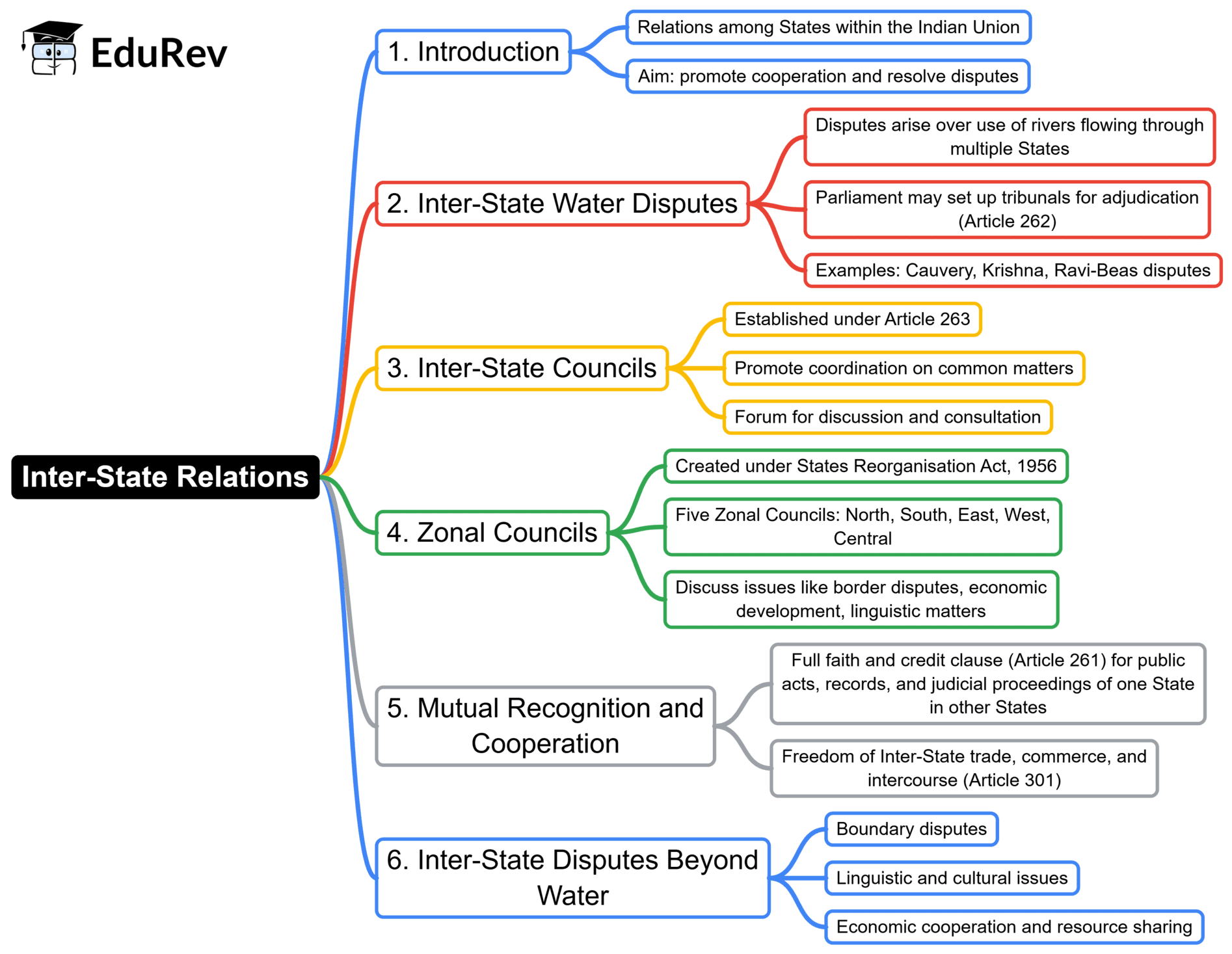UPSC Exam > UPSC Notes > Indian Polity for UPSC CSE > Mind Map: Centre–State & Inter State Relations
Mind Map: Centre–State & Inter State Relations | Indian Polity for UPSC CSE PDF Download
Centre - State Relations

Inter- State Relations

The document Mind Map: Centre–State & Inter State Relations | Indian Polity for UPSC CSE is a part of the UPSC Course Indian Polity for UPSC CSE.
All you need of UPSC at this link: UPSC
|
151 videos|780 docs|202 tests
|
FAQs on Mind Map: Centre–State & Inter State Relations - Indian Polity for UPSC CSE
| 1. What are the key features of Centre-State relations in India? |  |
Ans.The key features of Centre-State relations in India include the distribution of powers and responsibilities defined in the Constitution. The Constitution provides for a federal structure, which means that powers are divided between the Centre and the States. The Union List, State List, and Concurrent List categorize the subjects on which each level of government can legislate. Additionally, the Centre has the power to legislate on matters in the State List during emergencies. Furthermore, the Centre can also influence State matters through financial assistance and grants.
| 2. How does the Constitution of India define the distribution of powers between the Centre and the States? |  |
Ans.The Constitution of India delineates the distribution of powers between the Centre and the States through three lists in the Seventh Schedule: the Union List, the State List, and the Concurrent List. The Union List contains subjects on which only the Central Government can legislate, such as defense and foreign affairs. The State List includes subjects on which only the State Governments can legislate, like police and public health. The Concurrent List contains subjects where both can legislate, such as education and marriage. In case of a conflict between Central and State laws on Concurrent subjects, the Central law prevails.
| 3. What are the major challenges in Centre-State relations in India? |  |
Ans.Major challenges in Centre-State relations include issues of cooperative federalism, where states may feel marginalized in decision-making processes. Financial dependence of states on the Centre can lead to tensions regarding autonomy. Additionally, political conflicts between the ruling party at the Centre and state governments can complicate relations. The implementation of central schemes at the state level can also create friction if states perceive these schemes as encroaching on their rights or interests.
| 4. What mechanisms exist for resolving disputes between states in India? |  |
Ans.Disputes between states in India can be resolved through various mechanisms. The Inter-State Council, established under Article 263 of the Constitution, is a key body for discussing and resolving disputes. Additionally, the Supreme Court can adjudicate disputes between states. The Parliament also has the power to make laws for the resolution of such disputes. Furthermore, states can engage in negotiations and discussions to amicably settle disagreements.
| 5. How do Inter-State relations impact governance in India? |  |
Ans.Inter-State relations significantly impact governance in India by influencing resource allocation, law enforcement, and policy implementation. Cooperation between states can lead to improved infrastructure and economic development, while conflicts can hinder progress. The need for collaboration on issues like water sharing, environmental concerns, and trade regulations underscores the importance of healthy Inter-State relations for effective governance and regional stability.
Related Searches
















